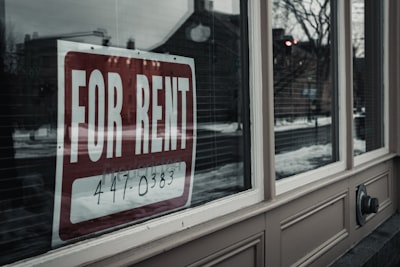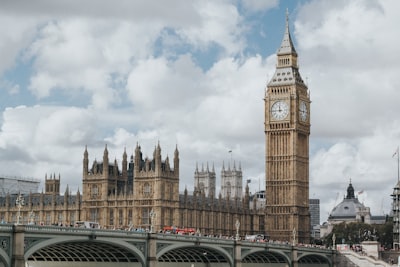Pros and Cons of Living in the UK: Is the UK right for you?
If you are still deciding whether you should move to the UK, you might want to continue reading.
Photo by JESHOOTS.COM on Unsplash
Unless you are the kind to make a spur-of-moment decision to travel around the world, deciding to move and live abroad involves careful and serious considerations. Before you commit to the process of uprooting your life to relocate abroad, it is important you weigh the pros and cons.
While living in the UK can be thrilling and fulfilling, some downsides might just be a deal-breaker for you. Let’s dive into some of the critical aspects to consider.
PROS:
1. Career and Job Opportunities
The UK job market has a lot of opportunities to offer whether you are looking for a progressive career path or flexible work options. The recent market trend is particularly opening up with offers of a promising career up the corporate ladder to ex-pats who are professionals or tech talents.
2. Business Opportunities and Entrepreneurship
The UK provides a very conducive environment for starting a business. The country ranks quite high in the ease of doing business index. With the country’s constantly evolving pro-innovation policies, it’s not hard to see why. The favourable business environment makes the country increasingly attractive to new IT start-ups as well as international investors than ever before.
The Startup visa and the Innovator visa are some options to look up if you’re considering establishing a business in the UK.
3. Access to Free Education
Public schools in the UK are state-funded and tuition-free for all pupils. So everyone who is a legal resident in the country can send their children to school tuition-free up until the age of 18.
Moving to the UK with dependants of school age? You can contact us to help you find suitable schooling options for your ward.
4. Access to a mostly free healthcare
Of course, one of the unmissable perks of living in the UK is the public healthcare system, the NHS.
UK citizens and foreign nationals alike can consult a doctor and receive free medical treatment through the National Healthcare Service, which is accessible and -for the most part- free for all UK residents.
NHS free healthcare cover ensures that families don’t take major financial hits due to major surgery or medical emergency. For most foreigners, you will have to pay the IHS surcharge as a contribution towards these services but it is essentially free and accessible once you are in the UK. There are certain health services that are chargeable such services as dental treatments.
5. Multiculturalism and diversity
Due to a long history of immigration, the UK is home to incredibly diverse populations. This is particularly evident in major cities like Birmingham, London, Manchester and Edinburgh. These cities are the ‘melting pot’ of different cultures and ethnicities which is a welcoming environment for most newcomers. Foreigners are able to feel a sense of belonging which helps with their acclimatisation.
Thanks to the diverse immigrant population, you’ll easily find all kinds of international cuisines ranging across Turkish, African, Caribbean, Italian, Indian and Thai dishes.
6. Strong labour laws and employee benefits
If you are looking for another good reason to move to the UK for work, here’s one - great labour laws. Full-time workers are entitled to 28 paid holidays in a year. Besides that, employees enjoy a number of benefits such as paid sick leave, parental leave, the right to unionise, pension and sometimes, medical cover as part of employment packages.
UK labour law has instituted regulations to protect employees such as the implementation of a national minimum wage and a Working Time Directive which prevent workers from being forced to work more than 48 hours a week.
7. High quality of life and Developed Infrastructure
As a top-developed economy, the UK is naturally an attractive option for economic migration. The UK economy is stable and diversified, providing its population with income equality, quality public education, political stability, a well-rounded healthcare system and safety.
Unemployment and poverty are low as the economy provides financial security for its citizens.
Most cities in the UK have well-developed infrastructure and public facilities. It’s quite convenient to move around without owning a car because the public transport system is well connected and efficient.
-
Easy travel to Europe
Travelling to the Europe mainland from the United Kingdom is easy and straightforward. Although the process isn't as smooth now that post-Brexit border controls and immigration laws have been implemented. Regardless of the changes, Europe remains accessible due to cheap flight fares and well-connected airports.
Budget flights, international high-speed trains and even ferries are all options for getting to European destinations.
-
Arts, Music and Sports
Living in the United Kingdom will expose you to prestigious sporting, music, and arts events that are usually hosted in major metropolitan cities.
When it comes to the arts and music scene, London alone is home to renowned museums, art galleries, concert venues and theatres that stage world-class exhibitions and performances.
Sport is ingrained in the British culture as the country is a front-runner in a number of international sporting events.
Football tournaments are quite popular and are held frequently in various cities. You can easily join in the football culture by going to the stadium or local pubs to cheer on your favourite club alongside other ardent fans.
CONS:
1. Cost of Living
The cost of living in the UK is not for the fainthearted, especially if you choose to settle in London. London is the destination hot spot for a lot of newcomers, however, it's not the ideal place to live if you are still trying to get your footing in a new country. Housing prices, food costs, utilities and everyday spending will all count toward your expenses.
There has been a surge in the cost of living in neighbouring cities as more people troupe in to avoid expensive London life.
Nonetheless, several small, albeit ‘undesirable’, towns are affordable to live in. In fact, the higher you go up north of England, the cheaper things become.
2. Visa requirements are stringent and costly
Getting a UK visa is the first hurdle to planning your life in the UK. Applying for a UK visa can be complicated and expensive. From gathering the right documents to completing your biometrics registration and everything in between, getting through the stringent application can be tiresome.
Obtaining a UK visa means paying non-refundable visa fees, high IHS fees and adhering to strict financial requirements; none of which guarantee you the visa.
3. Difficulty to set up a Bank Account
Opening a bank account as a foreigner is one of the single most difficult things to get when you first arrive in the UK.
The process of applying for a bank account can be quite restrictive for a newcomer as you need to provide your visa/proof of your residence status, means of identification, and proof of address.
Yet, UK banks can be selective of whom they give an account to as they follow strict guidelines to guard against fraud.
4. Long GP/Doctor’s waitlist
The downside to the free NHS system is often the long waitlist to get an appointment or see a doctor, especially a specialist.
GP appointment availability varies greatly depending on where you live in England, however, it's not uncommon for slots to be booked out for two to three weeks. When you need to see a specialist, you may have to wait months. To get access to faster and a wider range of health services, many people opt for private healthcare insurance policies.
5. Highly competitive job market
We’ve often spoken about the opportunities in the UK, yet an important factor to consider is the accessibility to these lucrative roles.
First of all, if you don't speak English fluently, you will find it difficult to find a job. Just as practised in the EU, UK employers prefer to hire their own citizens as they will have no need to obtain a work visa.
The job market in many industries is highly competitive and the best job offers go to those that are highly skilled and qualified.
6. Low wages outside of London
A major drawback to deciding to pursue your career in the UK is the comparatively low wages. To make a good salary, you might need to live in London or neighbouring cities like Reading, Milton Keynes, Cambridge, Crawley, Slough and Oxford. However, the trade-off with living in these cities is the high living costs.
In the northern region where life is cheaper, the wages are relatively low. The average full-time worker living in the North East of England earns 25% less per week than what is obtainable in London.
7. Expensive Housing
If you dream of a life in the UK living on your own property, then you might be in for a challenge.
Housing in the UK is expensive whether you are renting or buying your own property. London is particularly infamous for its exorbitant rents and housing prices. Considering the average annual salary, it is difficult to save for the initial deposit and even when you find a reasonably priced house, you could spend the next 25 years or more paying off your mortgage. For this reason, many Brits themselves get to own properties through inheritance or gifts.
8. Rail travel is expensive and unreliable
While trains are the easiest and more convenient means to get around, the fares are quite pricey compared to other European countries. It’s cheaper to fly from London to some other European city than to travel within England.
Oftentimes, people book their tickets months in advance or purchase a railcard to subsidise the cost of travelling by rail.
The train schedule is also often fraught with delays due to regular engineering work or weather conditions.
9. Renting is hard
For most people staying in the UK for a few years, they will need to rent a few times.
The process, however, can be tedious and unpredictable. From getting through the paperwork to meeting the requirements specific to each landlord, renting is a long-winded process that you’d love to skip.
The cost of renting and the associated charges are some things to prepare for when looking for housing in the UK.
There are other factors to consider such as the location, rent guarantor, terms of tenancy, suitability and so on. Renting your first home in the UK can be made easy with Maze.
10. Making friends and building a network
The UK is an individualistic society with a reserved culture that makes people less invested in the community. As a newcomer, you might find it challenging to meet people or even make friends.
As a foreigner, there are a number of ways you can find community, however, this might not entirely negate the effect of loneliness and the feeling of homesickness, especially in your first few months.
11. Difficult Accents
The ‘British accent’ is commonly romanticised in the media when in reality there’s no unique British accent. What exists is a variety of accents and dialects that might be confusing to an English-speaking expat. In fact, there’s pretty much one accent per county, take the Brummie (Birmingham) accent For instance.
It might take you a while of familiarising yourself with the locals to grasp the distinctive accents and be able to understand conversations.
A lot of foreigners find the northern, Scottish, Leeds and Scousers (Liverpool) accent particularly hard to understand.
Maze provides an end-to-end platform that disrupts the traditional relocation model.
We connect people relocating with service providers, reduce cost and enable the personalization of customer journeys to the UK.
Follow us on Instagram, Twitter, Facebook and LinkedIn, or Contact us with your relocation enquiries.


